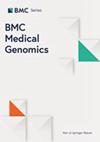孟德尔疾病和复杂疾病的共同病因有助于药物发现
IF 2.1
4区 医学
Q3 GENETICS & HEREDITY
引用次数: 0
摘要
针对疾病致病基因的药物更有可能成功治疗该疾病。然而,复杂疾病的致病基因并不总是明确的。相比之下,孟德尔疾病的致病基因是众所周知的,也是可以药物治疗的。在此,我们寻求一种方法,通过利用单基因疾病和复杂疾病之间共同致病过程的证据,利用孟德尔疾病的生物学特征来发现复杂疾病的药物。寻找共同病因的一种方法是临床关联:已知一些孟德尔疾病会使患者易患特定的复杂疾病(合并症)。以往的研究将这种并发症与孟德尔疾病致病基因对复合疾病的多效应联系起来。在之前对 90 种孟德尔疾病和 65 种复杂疾病的发病率进行的研究中,我们发现了 2,908 对临床相关(合并)疾病。利用这一临床信号,我们可以将每种复杂疾病与一组孟德尔疾病的致病基因相匹配。我们假设,针对这些基因的药物是治疗复杂疾病的潜在候选药物。我们利用当前药物适应症或研究的信息对候选药物进行评估。我们的分析表明,候选药物富集于相关复杂疾病的当前研究或适应症药物中(几率比 = 1.84,p = 5.98e-22)。此外,候选药物更有可能处于药物开发管道的后期阶段。我们还提出了一种方法,用于优先考虑特别有希望进行药物再利用的孟德尔疾病。最后,我们发现结合孟德尔疾病和癌症的合并症和遗传相似性,可以推荐富含这些调查或指示的候选药物。我们的发现为利用孟德尔疾病生物学的丰富知识改善复杂疾病的治疗提供了一种新方法。本文章由计算机程序翻译,如有差异,请以英文原文为准。
Shared etiology of Mendelian and complex disease supports drug discovery
Drugs targeting disease causal genes are more likely to succeed for that disease. However, complex disease causal genes are not always clear. In contrast, Mendelian disease causal genes are well-known and druggable. Here, we seek an approach to exploit the well characterized biology of Mendelian diseases for complex disease drug discovery, by exploiting evidence of pathogenic processes shared between monogenic and complex disease. One way to find shared disease etiology is clinical association: some Mendelian diseases are known to predispose patients to specific complex diseases (comorbidity). Previous studies link this comorbidity to pleiotropic effects of the Mendelian disease causal genes on the complex disease. In previous work studying incidence of 90 Mendelian and 65 complex diseases, we found 2,908 pairs of clinically associated (comorbid) diseases. Using this clinical signal, we can match each complex disease to a set of Mendelian disease causal genes. We hypothesize that the drugs targeting these genes are potential candidate drugs for the complex disease. We evaluate our candidate drugs using information of current drug indications or investigations. Our analysis shows that the candidate drugs are enriched among currently investigated or indicated drugs for the relevant complex diseases (odds ratio = 1.84, p = 5.98e-22). Additionally, the candidate drugs are more likely to be in advanced stages of the drug development pipeline. We also present an approach to prioritize Mendelian diseases with particular promise for drug repurposing. Finally, we find that the combination of comorbidity and genetic similarity for a Mendelian disease and cancer pair leads to recommendation of candidate drugs that are enriched for those investigated or indicated. Our findings suggest a novel way to take advantage of the rich knowledge about Mendelian disease biology to improve treatment of complex diseases.
求助全文
通过发布文献求助,成功后即可免费获取论文全文。
去求助
来源期刊

BMC Medical Genomics
医学-遗传学
CiteScore
3.90
自引率
0.00%
发文量
243
审稿时长
3.5 months
期刊介绍:
BMC Medical Genomics is an open access journal publishing original peer-reviewed research articles in all aspects of functional genomics, genome structure, genome-scale population genetics, epigenomics, proteomics, systems analysis, and pharmacogenomics in relation to human health and disease.
 求助内容:
求助内容: 应助结果提醒方式:
应助结果提醒方式:


